In Focus This Week
The Ballot Verifier
A new standard in transparency
By M. Mindy Moretti
electionline.org
Following the 2020 election, Ada County, Idaho, like most elections offices around the country, saw an unprecedented increase in the public interest in the voting process. Included in this interest was an exponential uptick in public records requests.
For Ada County, many of the requests related to both Cast Vote Records (“CVR” or “CVRs”) and inspection of ballots or ballot images.
In response, the elections office set the audacious goal of posting all ballot images and corresponding CVRs after every election in a user-friendly, public database that is easily accessible to all citizens, free of charge–a site that eventually became known as The Ballot Verifier.
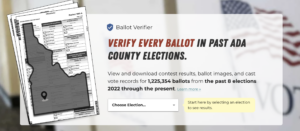 The county partnered with Civera, a civic technology company that had already worked with the secretary of state’s office in Idaho.
The county partnered with Civera, a civic technology company that had already worked with the secretary of state’s office in Idaho.
The county and Civera began discussion in September of 2022 regarding the feasibility of such a platform and the initial stages included a discovery phase of the data and reports available through the county’s voting system, Hart Intercivic. The county had already begun exploring the capture of ballot images and CVRs in November of 2021 and had full data sets beginning in 2022.
In addition to finding a company to partner with, the county had to ensure that their idea fell within all existing Idaho laws.
“We had to ensure Idaho Constitution’s requirement for a secret ballot was maintained,” said Nicole Newby, public information officer. “We took this legal requirement very seriously during development and testing and have ballot masking in place if there is any question as to how to maintain confidentiality.”
After much exploration, the Ada team and Civera team determined that it was technically feasible to pair all ballot images and CVRs for every election. Accordingly, Ada County and Civera went under contract in the winter of 2023 to fully develop the Ballot Verifier, which would leverage Civera’s ElectionStats platform.
Following months of work, they began to beta test the product internally, spending weeks identifying and overcoming issues relating to accurate pairing of ballots and CVRs, design and ease of use, and accuracy and confidentiality in all data.
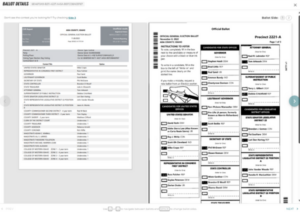 After the initial testing, they expanded the scope and brought in partners with the Idaho Secretary of State’s Office as well as local Idaho election integrity advocates who are inherently skeptical of election systems.
After the initial testing, they expanded the scope and brought in partners with the Idaho Secretary of State’s Office as well as local Idaho election integrity advocates who are inherently skeptical of election systems.
“While we were in the testing phase of this project, we brought in some of our toughest critics and gave them the opportunity to use the tool before it was released and give us their feedback,” Newby explained. “After digging around in the tool for an hour, they told us how great it was to have this unfiltered view into elections. They said it is very beneficial to be able to see exactly what the ballot looks like after it has been marked and submitted alongside its corresponding Cast Vote Record and it provides a new window of transparency into the election process.”
Ballot Verifier publicly launched one month before the May 2024 primary and immediately drew the attention of not only the public, but also the media.
“The public had a very positive reaction to the Ballot Verifier,” Newby said. “There were questions from the public, relating to voter privacy, marking of ballots, etc., Overall, the public seemed to appreciate the transparency and have enjoyed having the tool available on our website.”
According to Newby, the county IT department tracks the traffic that the site gets and the site typically sees spikes in people visiting the webpage after an election and after the ballot images and CVR’s are posted. Civera, the software company also tracks their own analytics on the site and looks more in depth as to what users are clicking on and looking for.
It cost the county about $40,000 to create the initial system in partnership with Civera and Newby said the system has been an extremely beneficial tool for the office and county and provides great insight into election processes and voter behavior.
(A Professional Practice Paper on Ada County, Idaho’s Ballot Verifier received the Eagle Award for Exemplary Use of Technology at Election Center’s 2024 Annual Conference. In the coming months, electionline will be featuring more award-winning professional practices.)
2024 Clearie Award Winners
53 Programs from Election Offices Nationwide Recognized for Excellence in Election Administration
U.S. Election Assistance Commission Announces Winners of the 9th Annual Clearinghouse Awards
WASHINGTON, DC — This week, the U.S. Election Assistance Commission (EAC) announced the 53 winners of the Clearinghouse Awards out of a record 258 entries, recognizing best practices in election administration. Also known as the “Clearies,” the awards  celebrate programs that took place during the 2024 presidential election year. Winning jurisdictions range from counties with less than 25,000 registered voters to states with over 22.9 million.
celebrate programs that took place during the 2024 presidential election year. Winning jurisdictions range from counties with less than 25,000 registered voters to states with over 22.9 million.
EAC Chairman Donald Palmer, Vice Chair Thomas Hicks, and Commissioners Christy McCormick and Ben Hovland praised the 2024 Clearie winners in a joint statement:
“This year’s Clearinghouse Award-winning programs truly shined amid the high voter turnout in 2024. They are examples of the outstanding work election officials did to support tens of millions of voters during the presidential election. After nearly a decade, the Clearinghouse Awards continue to grow with a record number of entries received this year. These programs show how state and local election offices are the incubators of innovation. We are pleased to lift their ideas up and celebrate them on a national stage.”
The Clearies play an essential role in fulfilling the EAC’s mission to serve as a clearinghouse for election administration information under the Help America Vote Act. Submissions were judged on innovation, sustainability, outreach, cost-effectiveness, replicability, and the generation of positive results. This year’s award categories and winners include:
- Communications: Distinguished Voter Education and Communications Initiatives – Small/Medium Jurisdictions
- City of Monroe Clerk-Treasurer’s Office, Michigan – Ready, Set, Vote
- Dubuque County Elections, Iowa – Voting Artwork
- Huron County Board of Elections, Ohio – Boxed Ballot
- Indian River County Supervisor of Elections, Florida – MVP Program (Mobile Voter Program)
- Communications: Distinguished Voter Education and Communications Initiatives – Large Jurisdictions
- Buncombe County Election Services, North Carolina – The NC Together Video Project
- Charleston County Board of Voter Registration and Elections, South Carolina – “Owlbert Learns to Vote”
- Durham County Board of Elections, North Carolina – Durham County DCo Votes Mobile App
- Ottawa County, Michigan Clerk/ROD, Michigan – ”Not a Podcast – Ballots and Banter”
- Thurston County Auditor’s Office, Washington State – Your Neighbors, Your Elections
- Communications: Distinguished Voter Education and Communications Initiatives – State Level
- Nebraska Secretary of State – MY VOTE. MY ID. LET’S BRING IT
- Office of the Lieutenant Governor of Utah – 12 Days of Election Improvements “Votemas” Social Media Campaign
- South Carolina State Election Commission – Prep for the Polls Voter Education Program
- Vermont Secretary of State’s Office – Election Security in Vermont – Video PSA
- Washington Office of the Secretary of State – ”Mark the Ballot” Public Education Campaign
- Security: Innovation and New Tools in Election Security and Technology
- California Secretary of State – De-escalation Training Program for Election Staff
- Los Angeles County Registrar-Recorder/County Clerk – Electronic Chain of Custody Solution for Elections
- Pierce County Elections – Securing Democracy’s Inbox: An Air-Gapped Protocol for Processing Voter Email Attachments
- Tazewell County Clerk & Recorder of Deeds, Illinois – Election Judge Badge
- Contingency Planning: Exemplary Contingency Planning and Emergency Response Efforts – Small/Medium Jurisdictions
- Ann Arbor City Clerk’s Office, Michigan – “More Days, More Ways” – Planning for a Safe and Secure Election in Ann Arbor, Michigan
- Coconino County Elections Department, Arizona – Empowering Poll Workers Through Situational Awareness Training: A Model for Collaboration Between Elections and Law Enforcement
- Lexington County Voter Registration, South Carolina – Election Training
- Contingency Planning: Exemplary Contingency Planning and Emergency Response Efforts – Large Jurisdictions
- Buncombe County Election Services, North Carolina – Buncombe County, NC, Helene Disaster Response
- North Carolina State Board of Elections – Voting Through Helene and High Water
- Office of the Idaho Secretary of State – A Proactive and Collaborative Approach to Election Security & Threat Response
- Wake County Board of Elections, North Carolina – Wake County Election Day Emergency Action Plan
- Election Administration: Innovations or New Practices in Election Administration – Small/Medium Jurisdictions
- County of Monterey, Elections Department, California – Books and Ballots Program
- Election Division, City of Flint Clerk’s Office, Michigan – Absent Voter Counting Board reorganization – documentation and communications
- Election Administration: Innovations or New Practices in Election Administration – Large Jurisdictions
- Fairfax County Office of Elections, Virginia – Pollbook Unclear? No Need to Fear! A Worksheet Leads the Way for Processing Nonroutine Voters
- Jefferson County Clerk & Recorder – A Signature Solution: Helping First-Time Voters Make Their Votes Count
- Prince William County Office of Elections, Virginia – Publishing Results Tapes Online
- Election Administration: Innovations or New Practices in Election Administration – State Level
- Arizona Secretary of State – Arizona Election Administration Student Fellowship Program
- Maryland State Board of Elections – Text2Cure
- Help America Vote Act (HAVA) Grants: Outstanding Use of HAVA Grants in Election Modernization
- Palm Beach County Supervisor of Elections, Florida – Enhancing Election Accessibility and Efficiency with HAVA Grants
- Sutter County Elections, California – Sutter Translate!
- Accessibility: Best Practices for Improving Accessibility for Voters with Disabilities
- Charleston County Board of Voter Registration and Elections, South Carolina – Voter Accessibility Advisory Committee
- Floyd County Elections, Georgia – Voter Accessibility Town Hall
- Salt Lake County Clerk Election Division, Utah – Try Before You Vote: Accessible Voter Outreach
- South Carolina State Election Commission – Voter Education Videos with American Sign Language Subtitles
- Washington Office of the Secretary of State – Elections Division – Partnering with our community to add ASL into the visual Video Voters’ Guide
- Poll Workers: Best Practices in Recruiting, Retaining, and Training Poll Workers – Small/Medium Jurisdictions
- Guam Election Commission – 2024 Guam College Poll Worker Program
- Porter County Elections & Registration, Indiana – Improving Poll Worker Support
- Washington County Board of Elections, Maryland – Election Judge Recruitment Open House
- Poll Workers: Best Practices in Recruiting, Retaining, and Training Poll Workers – Large Jurisdictions
- City of Minneapolis Elections & Voter Services, Minnesota – Student Election Judge Interpreter Training
- Fairfax County Office of Elections, Virginia – No More Waits, No Misplaced Tapes: Closing the Polls Faster on Election Night
- Los Angeles County Registrar-Recorder/County Clerk, California – Multilingual Election Worker Recruitment Tool
- Louisiana Secretary of State’s Office – Poll Worker Recruitment Card
- Pima County Elections Department, Arizona – Pima County Elections Training Program
- “I Voted” Stickers: Creative and Original “I Voted” Stickers – Small/Medium Jurisdictions
- Currituck County Board of Elections, North Carolina – “I Voted” Sticker Contest
- Harrison Township Clerk, Michigan – Boat Town “I Voted” Sticker
- Mesa County Elections Department, Colorado – Mesa County Elections 2024 Sticker Contest
- “I Voted” Stickers: Creative and Original “I Voted” Stickers – Large Jurisdictions
- Board of Elections, City of New York, New York – Battle of the Boroughs
- Division of Elections, Alaska – Alaska Celebrates Five Regions- One State
- Supervisor of Elections Office, Palm Beach County, Florida – Two Unique Accessible Braille Stickers for Voters
In addition to the Clearie winners, 44 programs were recognized with Clearie Honorable Mentions.
Winners were selected by independent panels of current and former election officials, EAC Commissioners, and members of the EAC’s advisory boards. Judges were not eligible to score any entries from their own jurisdictions.
electionline Daily News Email
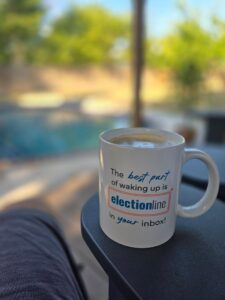 What’s the best part of waking up? electionline Daily News in your inbox of course so be sure to sign up for your daily dose.
What’s the best part of waking up? electionline Daily News in your inbox of course so be sure to sign up for your daily dose.
Each morning you’ll receive the top headlines of the day, plus a listing of states featured in that day’s news round up.
To sign up, simply visit our site and provide us with your email and you’ll begin receiving the news in your inbox each morning.
We Google so you don’t have to!
Election News This Week
 Federal Update: State and local elections officials continued to speak about elections-related action at the federal level. Not only the president’s elections executive order and presidential memoranda, but also Congress’ passage of the SAVE Act. Minnesota Secretary of State Steve Simon, a Democrat, said the SAVE Act would “cause a lot of chaos in our election system, from top to bottom.” And criminal penalties, he said, would create a “cloud of intimidation” for election offices, many of which are underpaid and understaffed. Simon said the chaos would particularly impact elections’ technical processes, such as same-day voter registration and online voter registration, the latter of which is allowed in 42 states. Utah’s top elections official doesn’t like the SAVE Act, either. Lt. Gov. Deidre Henderson told KSL in a statement this week the bill is “problematic and impractical on almost all points except its talking points.” Numerous media outlets also looked into the impacts the SAVE Act may have, especially on married women. While 19 states have filed a lawsuit against the president’s executive order, The Washington Post took a look at the impact it could have as soon as the 2026 election. According to The Post, if put into effect, his recent executive order attempting to transform elections could make it impossible for some states to use voting machines, election experts said. No voting systems are commercially available that meet the standards the president put forward in his executive order. U.S. District Judge Loren L. AliKhan, blocked a new executive order punishing a prominent law firm that successfully sued Fox News for promoting false claims of election fraud. Speaking from the bench in her Washington, D.C., courtroom this week, AliKhan said Trump’s order targeting the law firm Susman Godfrey was part of a “personal vendetta.” “The framers of our Constitution would see this as a shocking abuse of power,” AliKhan said. In addition to presidential rulemaking and legislation, NPR had a story this week about Antonio Gracias, one of Elon Musk’s Department of Government Efficiency lieutenants working in the Social Security Administration who has been pushing claims about noncitizens voting, apparently using access to data that court records suggest DOGE isn’t supposed to have. Also this week, Secretary of State Marco Rubio announced the closure of the Counter Foreign Information Manipulation and Interference office at the State Department, formerly known as the Global Engagement Center. In a statement, Rubio claimed the office “spent millions of dollars to actively silence and censor the voices of Americans they were supposed to be serving.” According to Rubio, the relatively modest federal office expended “more than $50 million per year.” Funding for the center was stripped out of the final government funding deal signed into law by President Joe Biden in December, when its congressional authorization was set to expire. Previously, the center exposed a major Russian disinformation campaign in Africa, and last year put together an international agreement — now removed from the State Department’s website —to counter foreign disinformation that had the backing of around two dozen other nations.
Federal Update: State and local elections officials continued to speak about elections-related action at the federal level. Not only the president’s elections executive order and presidential memoranda, but also Congress’ passage of the SAVE Act. Minnesota Secretary of State Steve Simon, a Democrat, said the SAVE Act would “cause a lot of chaos in our election system, from top to bottom.” And criminal penalties, he said, would create a “cloud of intimidation” for election offices, many of which are underpaid and understaffed. Simon said the chaos would particularly impact elections’ technical processes, such as same-day voter registration and online voter registration, the latter of which is allowed in 42 states. Utah’s top elections official doesn’t like the SAVE Act, either. Lt. Gov. Deidre Henderson told KSL in a statement this week the bill is “problematic and impractical on almost all points except its talking points.” Numerous media outlets also looked into the impacts the SAVE Act may have, especially on married women. While 19 states have filed a lawsuit against the president’s executive order, The Washington Post took a look at the impact it could have as soon as the 2026 election. According to The Post, if put into effect, his recent executive order attempting to transform elections could make it impossible for some states to use voting machines, election experts said. No voting systems are commercially available that meet the standards the president put forward in his executive order. U.S. District Judge Loren L. AliKhan, blocked a new executive order punishing a prominent law firm that successfully sued Fox News for promoting false claims of election fraud. Speaking from the bench in her Washington, D.C., courtroom this week, AliKhan said Trump’s order targeting the law firm Susman Godfrey was part of a “personal vendetta.” “The framers of our Constitution would see this as a shocking abuse of power,” AliKhan said. In addition to presidential rulemaking and legislation, NPR had a story this week about Antonio Gracias, one of Elon Musk’s Department of Government Efficiency lieutenants working in the Social Security Administration who has been pushing claims about noncitizens voting, apparently using access to data that court records suggest DOGE isn’t supposed to have. Also this week, Secretary of State Marco Rubio announced the closure of the Counter Foreign Information Manipulation and Interference office at the State Department, formerly known as the Global Engagement Center. In a statement, Rubio claimed the office “spent millions of dollars to actively silence and censor the voices of Americans they were supposed to be serving.” According to Rubio, the relatively modest federal office expended “more than $50 million per year.” Funding for the center was stripped out of the final government funding deal signed into law by President Joe Biden in December, when its congressional authorization was set to expire. Previously, the center exposed a major Russian disinformation campaign in Africa, and last year put together an international agreement — now removed from the State Department’s website —to counter foreign disinformation that had the backing of around two dozen other nations.
 Burlington County, NJ: In a report released last week, a North Jersey law firm found numerous problems with how Burlington County conducted the November 2024 election, which was characterized by “unacceptable” long lines and voting delays. The report found that a total of 13% fewer people voted in the 2024 election in Burlington County than in 2016 due to long lines caused in part by a lack of communication and coordination with the county’s election offices, a late rollout of new voting machines, and troublesome polling locations. The report outlines findings of “a culture of territorialism,” “partisan tension,” and “personality conflicts” among countywide election offices. The report also cited poll workers who refused to accept delivery of a new voting machine that would have alleviated delays; poorly trained poll workers who did not understand the voting process; and election officials who would “not work together at all,” among other problems. he findings are part of a preliminary accounting of events that presages a final report, the date of which has not been determined. The interim report was released so that elections officials would have the opportunity to address problems before the primary election on June 10. The report includes recommendations meant to “substantially mitigate, if not eliminate, many of the problems that occurred on Election Day in November 2024” across many of the county’s 40 municipalities. Burlington County Commissioner Director Felicia Hopson acknowledged in a statement that “there were failures all around and the report makes that clear.” She added that the law firm “has done exactly what we asked,” with the interim report outlining “preliminary factual findings and assessments about what caused the unacceptable long lines and delays on Election Day, and it makes recommendations about what actions our county should take to prevent the problems from occurring again.”
Burlington County, NJ: In a report released last week, a North Jersey law firm found numerous problems with how Burlington County conducted the November 2024 election, which was characterized by “unacceptable” long lines and voting delays. The report found that a total of 13% fewer people voted in the 2024 election in Burlington County than in 2016 due to long lines caused in part by a lack of communication and coordination with the county’s election offices, a late rollout of new voting machines, and troublesome polling locations. The report outlines findings of “a culture of territorialism,” “partisan tension,” and “personality conflicts” among countywide election offices. The report also cited poll workers who refused to accept delivery of a new voting machine that would have alleviated delays; poorly trained poll workers who did not understand the voting process; and election officials who would “not work together at all,” among other problems. he findings are part of a preliminary accounting of events that presages a final report, the date of which has not been determined. The interim report was released so that elections officials would have the opportunity to address problems before the primary election on June 10. The report includes recommendations meant to “substantially mitigate, if not eliminate, many of the problems that occurred on Election Day in November 2024” across many of the county’s 40 municipalities. Burlington County Commissioner Director Felicia Hopson acknowledged in a statement that “there were failures all around and the report makes that clear.” She added that the law firm “has done exactly what we asked,” with the interim report outlining “preliminary factual findings and assessments about what caused the unacceptable long lines and delays on Election Day, and it makes recommendations about what actions our county should take to prevent the problems from occurring again.”
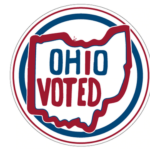 Ohio E-poll books: More than half of Ohio’s 88 counties will be going back to paper check-in rolls for the upcoming May election after Secretary of State Frank LaRose directed boards of elections to do so following an investigation into new e-poll books in Perry County. “I’ve directed our Election Integrity Unit and cybersecurity team to work with the Perry County Board of Elections to analyze the equipment purchased by the board,” said LaRose. “While this investigation is limited right now to a single device in one county, I’m taking the precautionary step of ordering my team to review all voter check-in systems for compliance with our security directives ahead of the May election. As an added precaution, I’m directing the boards of elections who use this specific style of pollbook to use paper pollbooks for the May election. This action will have little to no impact on voters, as we anticipate turnout to be relatively low, and I’ve always required boards of elections to have paper pollbook backups ready to go as a contingency.” The switch to paper pollbooks, which is a return to how many Ohioans checked in at the polls in the past, will be easier to manage on May 6 than it might have been during some other elections, said Brian Mead, director of the Licking County Board of Elections “We don’t expect delays because we don’t expect a big turnout,” he said. Other election boards have expressed concerns about the switch to paper pollbooks, noting it could increase voting time and costs. “We are having to double our precinct election officials at the polling locations on election day,” Fairfield County Board of Elections Deputy Director Jane Hanley said, but added that there is no cost estimate just yet.
Ohio E-poll books: More than half of Ohio’s 88 counties will be going back to paper check-in rolls for the upcoming May election after Secretary of State Frank LaRose directed boards of elections to do so following an investigation into new e-poll books in Perry County. “I’ve directed our Election Integrity Unit and cybersecurity team to work with the Perry County Board of Elections to analyze the equipment purchased by the board,” said LaRose. “While this investigation is limited right now to a single device in one county, I’m taking the precautionary step of ordering my team to review all voter check-in systems for compliance with our security directives ahead of the May election. As an added precaution, I’m directing the boards of elections who use this specific style of pollbook to use paper pollbooks for the May election. This action will have little to no impact on voters, as we anticipate turnout to be relatively low, and I’ve always required boards of elections to have paper pollbook backups ready to go as a contingency.” The switch to paper pollbooks, which is a return to how many Ohioans checked in at the polls in the past, will be easier to manage on May 6 than it might have been during some other elections, said Brian Mead, director of the Licking County Board of Elections “We don’t expect delays because we don’t expect a big turnout,” he said. Other election boards have expressed concerns about the switch to paper pollbooks, noting it could increase voting time and costs. “We are having to double our precinct election officials at the polling locations on election day,” Fairfield County Board of Elections Deputy Director Jane Hanley said, but added that there is no cost estimate just yet.
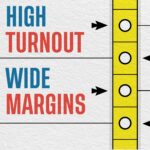 Podcast News: In the latest episode of High Turnout Wide Margins, hosts Eric Fey and Brianna Lennon speak with married election officials Akyn and Noah Beck in Georgia. Akyn is the Elections Supervisor in Floyd County, and husband Noah is the Elections Director in neighboring Polk County. They spoke about how the couple met and fell in love – over poll books and precinct population data, and about how they have seen the landscape of Georgia election administration change in the last few years.
Podcast News: In the latest episode of High Turnout Wide Margins, hosts Eric Fey and Brianna Lennon speak with married election officials Akyn and Noah Beck in Georgia. Akyn is the Elections Supervisor in Floyd County, and husband Noah is the Elections Director in neighboring Polk County. They spoke about how the couple met and fell in love – over poll books and precinct population data, and about how they have seen the landscape of Georgia election administration change in the last few years.
Personnel News: Erika Brady has been named the Austin, Texas city clerk. Maribeth Witzel-Behl has resigned as the Madison, Wisconsin clerk. Keene, New Hampshire City Clerk Patty Little is retiring after 44 years on the job. Doña Ana County, New Mexico Clerk Amanda López Askin has announced her candidacy for secretary of state.
 In Memoriam: Joyce Kale-Pesta, an iconic figure in Mahoning County has died. She was 76. Kale-Pesta spent 33 years working for the county board of elections as a director, deputy director and clerk. After her retirement in November 2021, Kale-Pesta was appointed to serve as a board of elections member, holding that position until her death. Kale-Pesta was also the county Democratic Party’s vice chairwoman, the state Democratic Party central committeewoman representing the 33rd District and secretary of the Ohio Association of Election Officials at the time of her death. She served as the county Democratic Party’s chairwoman from May 2019 to June 2022, the only woman to lead the local party. Mahoning County Republican Party Chairman Tom McCabe, who worked 27 years with Kale-Pesta at the elections board, said, “She was a great partner. We got along great. She loved elections. She was a trailblazer.” Kale-Pesta started working for the board of elections as a clerk in December 1988. She was promoted to deputy director in 2005 and served as the board’s director from 2012 until her retirement in November 2021. Kale-Pesta was quickly appointed as a board member after her retirement and continued to serve in that capacity. Elections board Chairman David Betras said of Kale-Pesta: “It’s like losing a family member. That’s how close we were. She was iconic when it comes to Mahoning County politics and voting. I’m devastated. It’s a void that I don’t think can be filled by anyone.”
In Memoriam: Joyce Kale-Pesta, an iconic figure in Mahoning County has died. She was 76. Kale-Pesta spent 33 years working for the county board of elections as a director, deputy director and clerk. After her retirement in November 2021, Kale-Pesta was appointed to serve as a board of elections member, holding that position until her death. Kale-Pesta was also the county Democratic Party’s vice chairwoman, the state Democratic Party central committeewoman representing the 33rd District and secretary of the Ohio Association of Election Officials at the time of her death. She served as the county Democratic Party’s chairwoman from May 2019 to June 2022, the only woman to lead the local party. Mahoning County Republican Party Chairman Tom McCabe, who worked 27 years with Kale-Pesta at the elections board, said, “She was a great partner. We got along great. She loved elections. She was a trailblazer.” Kale-Pesta started working for the board of elections as a clerk in December 1988. She was promoted to deputy director in 2005 and served as the board’s director from 2012 until her retirement in November 2021. Kale-Pesta was quickly appointed as a board member after her retirement and continued to serve in that capacity. Elections board Chairman David Betras said of Kale-Pesta: “It’s like losing a family member. That’s how close we were. She was iconic when it comes to Mahoning County politics and voting. I’m devastated. It’s a void that I don’t think can be filled by anyone.”
Ballot Measures, Legislation & Rulemaking
 Federal Legislation: On April 10, the U.S. House approved the SAVE Act – legislation to require proof of U.S. citizenship when registering to vote for federal elections. Nearly all Democrats lined up against the bill and warned that it risks disenfranchising millions of Americans who do not have ready access to the proper documents. The SAVE Act would require all applicants using the federal voter registration form to provide documentary proof of citizenship in person at their local election office. Among the acceptable documents are a valid U.S. passport and a government-issued photo ID card presented alongside a certified birth certificate. The SAVE Act compels states to reject any voter registration application in which the applicant has not presented “documentary proof of United States citizenship.” Among the acceptable documents for demonstrating proof of citizenship are: A REAL ID-compliant driver’s license that “indicates the applicant is a citizen.”; A valid U.S. passport; A military ID card with a military record of service that lists the applicant’s birthplace as in the U.S.; A valid government-issued photo ID that shows the applicant’s birthplace was in the U.S.; or A valid government-issued photo ID presented with a document such as a certified birth certificate that shows the birthplace was in the U.S. The SAVE Act directs states, in consultation with the U.S. Election Assistance Commission, to ensure that “reasonable accommodations” are made to allow individuals with disabilities who submit the form to provide proof of citizenship to their election official. The legislation also considers that some states permit same-day voter registration and says, in those cases, voters must present proof of citizenship at their polling location “not later than the date of the election.” That would mean that people who do not have such proof with them would have to return with their documents before polls close to be registered and have their ballot counted. The legislation says anyone registering through a state motor vehicle agency also is required to provide proof of citizenship. It directs the Election Assistance Commission to issue guidance to state election officials about implementing the law’s requirements. “This legislation would immediately disenfranchise the 69 million women who have changed their names after marriage or divorce,” said Rep. Deborah Ross, a Democrat from North Carolina. Rep. Laurel Lee, a Republican from Florida, said the bill “contemplates this exact situation” of married women whose names have changed, saying it “explicitly directs states to establish a process for them to register to vote.” Morelle countered by saying, “Why not write it in the bill? Why are we making the potential for 50 different standards to be set? … How much paperwork do Republicans expect Americans to drown in?”
Federal Legislation: On April 10, the U.S. House approved the SAVE Act – legislation to require proof of U.S. citizenship when registering to vote for federal elections. Nearly all Democrats lined up against the bill and warned that it risks disenfranchising millions of Americans who do not have ready access to the proper documents. The SAVE Act would require all applicants using the federal voter registration form to provide documentary proof of citizenship in person at their local election office. Among the acceptable documents are a valid U.S. passport and a government-issued photo ID card presented alongside a certified birth certificate. The SAVE Act compels states to reject any voter registration application in which the applicant has not presented “documentary proof of United States citizenship.” Among the acceptable documents for demonstrating proof of citizenship are: A REAL ID-compliant driver’s license that “indicates the applicant is a citizen.”; A valid U.S. passport; A military ID card with a military record of service that lists the applicant’s birthplace as in the U.S.; A valid government-issued photo ID that shows the applicant’s birthplace was in the U.S.; or A valid government-issued photo ID presented with a document such as a certified birth certificate that shows the birthplace was in the U.S. The SAVE Act directs states, in consultation with the U.S. Election Assistance Commission, to ensure that “reasonable accommodations” are made to allow individuals with disabilities who submit the form to provide proof of citizenship to their election official. The legislation also considers that some states permit same-day voter registration and says, in those cases, voters must present proof of citizenship at their polling location “not later than the date of the election.” That would mean that people who do not have such proof with them would have to return with their documents before polls close to be registered and have their ballot counted. The legislation says anyone registering through a state motor vehicle agency also is required to provide proof of citizenship. It directs the Election Assistance Commission to issue guidance to state election officials about implementing the law’s requirements. “This legislation would immediately disenfranchise the 69 million women who have changed their names after marriage or divorce,” said Rep. Deborah Ross, a Democrat from North Carolina. Rep. Laurel Lee, a Republican from Florida, said the bill “contemplates this exact situation” of married women whose names have changed, saying it “explicitly directs states to establish a process for them to register to vote.” Morelle countered by saying, “Why not write it in the bill? Why are we making the potential for 50 different standards to be set? … How much paperwork do Republicans expect Americans to drown in?”
 Juneau, Alaska Ballot Measure: A new Juneau advocacy group called the Affordable Juneau Coalition filed three ballot petitions with the City and Borough of Juneau last week, including one to make in-person voting the default again. The Juneau Assembly made by-mail voting the default in 2023. Last year, a group of residents tried unsuccessfully to repeal that ordinance. The new petition filed this year seeks to amend the language in that same ordinance to make elections poll-based again instead of by-mail. The group cites increased cost to conduct elections and slower results as the reason behind the initiative, according to documents submitted to the city clerk’s office. By-mail voting has been used by the city since the start of the COVID-19 pandemic. In-person voting is still available at city vote centers. The city’s law department and the city clerk still need to review the three petitions. If they are approved, the Affordable Juneau Coalition has 30 days to gather just over 2,700 signatures for each petition to secure a spot on the ballot this October.
Juneau, Alaska Ballot Measure: A new Juneau advocacy group called the Affordable Juneau Coalition filed three ballot petitions with the City and Borough of Juneau last week, including one to make in-person voting the default again. The Juneau Assembly made by-mail voting the default in 2023. Last year, a group of residents tried unsuccessfully to repeal that ordinance. The new petition filed this year seeks to amend the language in that same ordinance to make elections poll-based again instead of by-mail. The group cites increased cost to conduct elections and slower results as the reason behind the initiative, according to documents submitted to the city clerk’s office. By-mail voting has been used by the city since the start of the COVID-19 pandemic. In-person voting is still available at city vote centers. The city’s law department and the city clerk still need to review the three petitions. If they are approved, the Affordable Juneau Coalition has 30 days to gather just over 2,700 signatures for each petition to secure a spot on the ballot this October.
 Alabama: The Senate passed a bill aimed at streamlining the process for restoring voting rights to some individuals with past felony convictions. SB 153, sponsored by Sen. Linda Coleman-Madison, D-Birmingham, would require the state’s Board of Pardons and Paroles to develop new procedures to make the restoration process easier. The bill passed the Senate 27-0. Under existing Alabama law, individuals can lose their right to vote following a conviction in state or federal court. They may have that right restored by the Board of Pardons and Paroles if they meet certain requirements, such as paying fines, fees and court costs and having completed their sentence. The bill seeks to make the restoration process more transparent and accessible. It requires the Board of Pardons and Paroles and the Secretary of State to develop and make available on their websites a specific form and instructions for applying for a Certificate of Eligibility to Register to Vote. This applies to individuals who met the eligibility criteria outlined in the state code before Oct. 1, 2025. Applicants would submit this form to the board for review. The board would be required to provide the secretary of state with the individual’s address and the date their voting rights were restored. Once the information is received, the secretary of state would then notify both the individual and the board of registrars in the county where the individual resides about the restoration date. The county board of registrars would be required to add the individual’s name back to the poll list and inform the person of their eligibility date, unless the individual had never been registered to vote prior to their conviction.
Alabama: The Senate passed a bill aimed at streamlining the process for restoring voting rights to some individuals with past felony convictions. SB 153, sponsored by Sen. Linda Coleman-Madison, D-Birmingham, would require the state’s Board of Pardons and Paroles to develop new procedures to make the restoration process easier. The bill passed the Senate 27-0. Under existing Alabama law, individuals can lose their right to vote following a conviction in state or federal court. They may have that right restored by the Board of Pardons and Paroles if they meet certain requirements, such as paying fines, fees and court costs and having completed their sentence. The bill seeks to make the restoration process more transparent and accessible. It requires the Board of Pardons and Paroles and the Secretary of State to develop and make available on their websites a specific form and instructions for applying for a Certificate of Eligibility to Register to Vote. This applies to individuals who met the eligibility criteria outlined in the state code before Oct. 1, 2025. Applicants would submit this form to the board for review. The board would be required to provide the secretary of state with the individual’s address and the date their voting rights were restored. Once the information is received, the secretary of state would then notify both the individual and the board of registrars in the county where the individual resides about the restoration date. The county board of registrars would be required to add the individual’s name back to the poll list and inform the person of their eligibility date, unless the individual had never been registered to vote prior to their conviction.
The House approved a bill specifying in law that state-issued foreign national driver licenses cannot be used to vote. This type of identification is currently not included on the Alabama Secretary of State’s list of forms of valid photo identification that can be used to vote. The Alabama Law Enforcement Agency can issue this form of identification to people who are in the United States legally but are not citizens. The identification is distinguished by an “FN” and labeled as not a form of federal ID. “My understanding is that there’s been some confusion at the polling places, my understanding and what I’ve been told, they’ve been used. If they have or haven’t been used, this bill simply says they cannot be used,” said Rep. Allen Treadaway, R-Morris.
 Arkansas: House Bill 1878, introduced by Representative Jessie McGruder, passed in committee this week. The bill is designed to make sure that people living in larger cities in Arkansas have better access to early voting. The bill would require county election officials to offer early voting in certain cities, and allow them to offer even more early voting locations if they choose. HB 1878 would require county election boards to provide early voting locations for primary and general elections in any city that has more than 15,000 people and where the county clerk is not already providing early voting. “This bill is a good government solution that would ensure every Arkansas population center will have at least one early voting location,” says McGruder. “It would protect our elections from bad actors, and it would protect Arkansas voters.“
Arkansas: House Bill 1878, introduced by Representative Jessie McGruder, passed in committee this week. The bill is designed to make sure that people living in larger cities in Arkansas have better access to early voting. The bill would require county election officials to offer early voting in certain cities, and allow them to offer even more early voting locations if they choose. HB 1878 would require county election boards to provide early voting locations for primary and general elections in any city that has more than 15,000 people and where the county clerk is not already providing early voting. “This bill is a good government solution that would ensure every Arkansas population center will have at least one early voting location,” says McGruder. “It would protect our elections from bad actors, and it would protect Arkansas voters.“
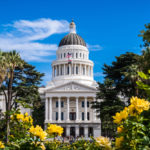 California: AB 5, a bill by Assemblymember Marc Berman, D-Menlo Park, would require counties to finish counting most ballots within 10 days of the election. It allows exceptions for provisional ballots and mail-in ballots that have issues such as a missing or mismatched voter signature. Voters would still have time to “cure” those ballots, or rectify any mistake to ensure their vote is counted. Berman’s bill would also allow counties to request an extension from the Secretary of State. The San Mateo County Democrat acknowledged California’s drawn-out vote counting “can be confusing to voters (and) frustrating for candidates.” He said the bill may still undergo tweaks as he works with county election officials to refine the language. The bill would not change official election certification timelines. Counties must certify their election within 30 days of the election. The Secretary of State certifies all results 38 days after the election. Elections officials have said that above speed, they prize accuracy and rules that give voters ample time to correct issues with mail-in ballots. “It’s about getting it right, not rushing it,” said Assemblymember Gail Pellerin, D-Santa Cruz, a former county elections chief. Pellerin endorsed Berman’s bill earlier this week, saying it strikes a balance that will not “compromise the accuracy, security and integrity of the election.” The bill passed its first hurdle in the Assembly Elections Committee on Wednesday and will next be heard in the Assembly Appropriations Committee.
California: AB 5, a bill by Assemblymember Marc Berman, D-Menlo Park, would require counties to finish counting most ballots within 10 days of the election. It allows exceptions for provisional ballots and mail-in ballots that have issues such as a missing or mismatched voter signature. Voters would still have time to “cure” those ballots, or rectify any mistake to ensure their vote is counted. Berman’s bill would also allow counties to request an extension from the Secretary of State. The San Mateo County Democrat acknowledged California’s drawn-out vote counting “can be confusing to voters (and) frustrating for candidates.” He said the bill may still undergo tweaks as he works with county election officials to refine the language. The bill would not change official election certification timelines. Counties must certify their election within 30 days of the election. The Secretary of State certifies all results 38 days after the election. Elections officials have said that above speed, they prize accuracy and rules that give voters ample time to correct issues with mail-in ballots. “It’s about getting it right, not rushing it,” said Assemblymember Gail Pellerin, D-Santa Cruz, a former county elections chief. Pellerin endorsed Berman’s bill earlier this week, saying it strikes a balance that will not “compromise the accuracy, security and integrity of the election.” The bill passed its first hurdle in the Assembly Elections Committee on Wednesday and will next be heard in the Assembly Appropriations Committee.
 Santa Clara County, California: Santa Clara County officials aren’t killing the idea of ranked choice voting — they just need to sort out an “existential crisis” before changing Silicon Valley elections. Ranked choice voting proponents wanted the idea to gain momentum at a meeting of the county Finance and Government Operations Committee meeting. But Supervisors Betty Duong and Susan Ellenberg, who sit on the committee, opted to delay bringing the proposal to the full Board of Supervisors until sometime after Sept. 30. “It’s not about the issue philosophically,” Duong said at the meeting. “It’s about the existential crisis of what this county will look like and how this county will operate.” Implementing ranked choice voting — a system where voters rank a candidate from first choice, second, third and so on — would cost about $4 million in the first year if applied only to countywide elected offices such as supervisor, sheriff, district attorney and assessor, according to estimates by county election officials. That includes nearly $3 million in one-time costs to educate residents about ranked choice voting. Sept. 30 marks the end of the current federal fiscal year, by which point county officials should know more about the extent of the federal funding losses they’re looking at. County officials said it doesn’t make sense to implement the new system, if approved, until 2028. Numerous decisions would still need to be made if supervisors approve the idea in general. They’ll have to decide how many county offices it will apply to, and whether to implement the system at the primary or maintain a runoff election. County lawyers will also have to draft policy that would come back for full board approval, unless county supervisors choose to put the question before voters again — nearly 30 years after receiving early voter support for the system in 1998.
Santa Clara County, California: Santa Clara County officials aren’t killing the idea of ranked choice voting — they just need to sort out an “existential crisis” before changing Silicon Valley elections. Ranked choice voting proponents wanted the idea to gain momentum at a meeting of the county Finance and Government Operations Committee meeting. But Supervisors Betty Duong and Susan Ellenberg, who sit on the committee, opted to delay bringing the proposal to the full Board of Supervisors until sometime after Sept. 30. “It’s not about the issue philosophically,” Duong said at the meeting. “It’s about the existential crisis of what this county will look like and how this county will operate.” Implementing ranked choice voting — a system where voters rank a candidate from first choice, second, third and so on — would cost about $4 million in the first year if applied only to countywide elected offices such as supervisor, sheriff, district attorney and assessor, according to estimates by county election officials. That includes nearly $3 million in one-time costs to educate residents about ranked choice voting. Sept. 30 marks the end of the current federal fiscal year, by which point county officials should know more about the extent of the federal funding losses they’re looking at. County officials said it doesn’t make sense to implement the new system, if approved, until 2028. Numerous decisions would still need to be made if supervisors approve the idea in general. They’ll have to decide how many county offices it will apply to, and whether to implement the system at the primary or maintain a runoff election. County lawyers will also have to draft policy that would come back for full board approval, unless county supervisors choose to put the question before voters again — nearly 30 years after receiving early voter support for the system in 1998.
 Indiana: Indiana Gov. Mike Braun signed a bill this week that bans the use of university-issued student IDs as a valid form of identification when voting. After the Indiana House of Representatives passed an amended form of Senate Bill 10 on April 2, the bill was shipped back to the State Senate, where it passed 39-9 along party lines in the Republican-supermajority chamber. Previously, acceptable forms of photo ID included student IDs from public universities, Indiana driver’s licenses, military ID cards, Indiana photo ID cards and U.S. passports. SB 10 removes student IDs from that list. The ban may create an extra obstacle for out-of-state students who wish to vote using their university residence. Students will have to change to an Indiana driver’s license or pay $165 to obtain a passport if they don’t already have one.
Indiana: Indiana Gov. Mike Braun signed a bill this week that bans the use of university-issued student IDs as a valid form of identification when voting. After the Indiana House of Representatives passed an amended form of Senate Bill 10 on April 2, the bill was shipped back to the State Senate, where it passed 39-9 along party lines in the Republican-supermajority chamber. Previously, acceptable forms of photo ID included student IDs from public universities, Indiana driver’s licenses, military ID cards, Indiana photo ID cards and U.S. passports. SB 10 removes student IDs from that list. The ban may create an extra obstacle for out-of-state students who wish to vote using their university residence. Students will have to change to an Indiana driver’s license or pay $165 to obtain a passport if they don’t already have one.
 Iowa: The Senate sent legislation to the governor this week making changes to the recount process. House File 928, passed 31-14, would change who can request a recount for an election in Iowa. In races for local offices and the Iowa Legislature, there would need to be difference of 1% or 50 votes between the candidates — whichever is less — for a candidate to request a recount. For statewide and federal races, the bill would require a 0.15% difference. Election recount boards would change from their current make-up of a person designated by each candidate, alongside one other individual agreed upon by both candidates. The new system would have county auditors lead the board with their staff and hired election workers, with a requirement that boards must have equal numbers of workers from each political party. Candidates could also be able to choose up to five people to observe the recount in each county. The bill would also implement an earlier deadline for requesting a recount, requiring requests be submitted by the end of the day of the second Wednesday after an election. The current deadline is the second Friday after an election. Recounts would be requested through the Secretary of State’s office for legislative, statewide and federal races, a change from the current system where campaigns make requests to each county auditor. Another portion of the bill requires recounts to be conducted using vote tabulators, whereas current law allows hand-counting in some areas. Sen. Ken Rozenboom, R-Oskaloosa, said these changes put Iowa’s recount process in line with other states, and addresses existing problems with potential conflicts of interest that exist in allowing campaigns to oversee the recount process.
Iowa: The Senate sent legislation to the governor this week making changes to the recount process. House File 928, passed 31-14, would change who can request a recount for an election in Iowa. In races for local offices and the Iowa Legislature, there would need to be difference of 1% or 50 votes between the candidates — whichever is less — for a candidate to request a recount. For statewide and federal races, the bill would require a 0.15% difference. Election recount boards would change from their current make-up of a person designated by each candidate, alongside one other individual agreed upon by both candidates. The new system would have county auditors lead the board with their staff and hired election workers, with a requirement that boards must have equal numbers of workers from each political party. Candidates could also be able to choose up to five people to observe the recount in each county. The bill would also implement an earlier deadline for requesting a recount, requiring requests be submitted by the end of the day of the second Wednesday after an election. The current deadline is the second Friday after an election. Recounts would be requested through the Secretary of State’s office for legislative, statewide and federal races, a change from the current system where campaigns make requests to each county auditor. Another portion of the bill requires recounts to be conducted using vote tabulators, whereas current law allows hand-counting in some areas. Sen. Ken Rozenboom, R-Oskaloosa, said these changes put Iowa’s recount process in line with other states, and addresses existing problems with potential conflicts of interest that exist in allowing campaigns to oversee the recount process.
 Missouri: The House passed legislation that would bring back state-run presidential primaries, three years after lawmakers eliminated them. It is a reversal that comes after blowback from voters and party officials who complained the alternative made it difficult for people to vote. A bipartisan group of lawmakers approved House Bill 126 in an 85-64 vote. The bill passed with support from 42 Democrats and 43 Republicans, the Missourian reports, although most House Republicans voted against it. The bill, sponsored by Rep. Rudy Veit, R-Wardsville, would bring back state-run presidential primaries. In 2022, Missouri lawmakers eliminated the primaries as part of a sweeping elections bill backed by then-Secretary of State Jay Ashcroft. At the time, supporters said it would save the state money. The estimated cost to the state for conducting the primaries is $8 million, according to Missourian reporting.
Missouri: The House passed legislation that would bring back state-run presidential primaries, three years after lawmakers eliminated them. It is a reversal that comes after blowback from voters and party officials who complained the alternative made it difficult for people to vote. A bipartisan group of lawmakers approved House Bill 126 in an 85-64 vote. The bill passed with support from 42 Democrats and 43 Republicans, the Missourian reports, although most House Republicans voted against it. The bill, sponsored by Rep. Rudy Veit, R-Wardsville, would bring back state-run presidential primaries. In 2022, Missouri lawmakers eliminated the primaries as part of a sweeping elections bill backed by then-Secretary of State Jay Ashcroft. At the time, supporters said it would save the state money. The estimated cost to the state for conducting the primaries is $8 million, according to Missourian reporting.
 Nevada: A new bill aiming to expand voting access and update election procedures is moving forward in the Legislature after clearing the first major bill deadline last week. The legislation requires the Secretary of State to allow any registered voter to use an approved electronic transmission system to apply for and cast a ballot if they cannot access their mail ballot or are unable to go to the polls due to illness or disability. This system was previously limited to military, overseas voters, and certain disabled or tribal voters. Senate Bill 74 also removes restrictions on candidacy for those who have changed voter registration information in another state and sets forth a new form for independent candidates’ declarations of candidacy. Additionally, it allows candidate filing fees to be paid by credit card and mandates that election notices include candidate names and party affiliations. County and city clerks are authorized to notify the public about these changes, and the bill clarifies that pupils can be appointed as election board trainees regardless of political affiliation. It also revises the process for declaring candidates elected in primary elections and updates standards for counting votes. The legislation introduces “election accuracy audits” and allows for inspection of election materials for audit purposes. It also requires voter registration agencies to inform voters registering after the mail deadline that they must register online or in person to vote in upcoming elections. Furthermore, the bill mandates the Secretary of State to adopt a cyber-incident response plan and allows certain elderly dependents to request confidentiality of personal information. It aligns the withdrawal of candidacy deadlines for city office candidates with those for other candidates and clarifies campaign contribution limits for special elections. The bill repeals certain provisions related to vote counting and voter registration transmission, aiming to streamline and modernize Nevada’s election processes.
Nevada: A new bill aiming to expand voting access and update election procedures is moving forward in the Legislature after clearing the first major bill deadline last week. The legislation requires the Secretary of State to allow any registered voter to use an approved electronic transmission system to apply for and cast a ballot if they cannot access their mail ballot or are unable to go to the polls due to illness or disability. This system was previously limited to military, overseas voters, and certain disabled or tribal voters. Senate Bill 74 also removes restrictions on candidacy for those who have changed voter registration information in another state and sets forth a new form for independent candidates’ declarations of candidacy. Additionally, it allows candidate filing fees to be paid by credit card and mandates that election notices include candidate names and party affiliations. County and city clerks are authorized to notify the public about these changes, and the bill clarifies that pupils can be appointed as election board trainees regardless of political affiliation. It also revises the process for declaring candidates elected in primary elections and updates standards for counting votes. The legislation introduces “election accuracy audits” and allows for inspection of election materials for audit purposes. It also requires voter registration agencies to inform voters registering after the mail deadline that they must register online or in person to vote in upcoming elections. Furthermore, the bill mandates the Secretary of State to adopt a cyber-incident response plan and allows certain elderly dependents to request confidentiality of personal information. It aligns the withdrawal of candidacy deadlines for city office candidates with those for other candidates and clarifies campaign contribution limits for special elections. The bill repeals certain provisions related to vote counting and voter registration transmission, aiming to streamline and modernize Nevada’s election processes.
 North Carolina: Democrats have introduced a bill designed to prevent votes from being tossed out based on postelection rule changes. The Voter Protection and Reliance Act, filed last week in the North Carolina House, says that ballots cast in state elections will be counted based on the laws and procedures in place on Election Day. It also forbids votes from being discarded because of technical or clerical errors in voter registrations. The bill also mandates that litigation involving election-related issues must be dealt with on an expedited basis by North Carolina courts so that candidates can resolve issues before elections rather than afterward.
North Carolina: Democrats have introduced a bill designed to prevent votes from being tossed out based on postelection rule changes. The Voter Protection and Reliance Act, filed last week in the North Carolina House, says that ballots cast in state elections will be counted based on the laws and procedures in place on Election Day. It also forbids votes from being discarded because of technical or clerical errors in voter registrations. The bill also mandates that litigation involving election-related issues must be dealt with on an expedited basis by North Carolina courts so that candidates can resolve issues before elections rather than afterward.
 North Dakota: North Dakota Gov. Kelly Armstrong signed a bill this week, effectively banning the use of ranked choice and approval voting in all elections statewide. The legislation received wide support in both the House and Senate. “Now more than ever, we need a consistent, efficient and easy-to-understand voter experience across our entire state to maintain trust in our election system,” Armstrong said in a statement Wednesday. “House Bill 1297 ensures a uniform system of secure elections at all levels of government in North Dakota. This is one more in a series of proactive, common-sense steps our Secretary of State and Legislature have taken to support election integrity,” he said. Approval voting allows each voter to vote for all candidates of whom they approve instead of choosing one. This method is used for city elections in Fargo — the first city in the nation to use approval voting. Fargo voted to use approval voting through an initiated ballot measure in 2018, with 64% of voters casting ballots in favor of the new system. It was used during the 2020, 2022 and 2024 mayoral and City Commission elections. Cities, counties and any political subdivision statewide are now barred from using either system to elect or nominate a candidate to any local, state or federal office.
North Dakota: North Dakota Gov. Kelly Armstrong signed a bill this week, effectively banning the use of ranked choice and approval voting in all elections statewide. The legislation received wide support in both the House and Senate. “Now more than ever, we need a consistent, efficient and easy-to-understand voter experience across our entire state to maintain trust in our election system,” Armstrong said in a statement Wednesday. “House Bill 1297 ensures a uniform system of secure elections at all levels of government in North Dakota. This is one more in a series of proactive, common-sense steps our Secretary of State and Legislature have taken to support election integrity,” he said. Approval voting allows each voter to vote for all candidates of whom they approve instead of choosing one. This method is used for city elections in Fargo — the first city in the nation to use approval voting. Fargo voted to use approval voting through an initiated ballot measure in 2018, with 64% of voters casting ballots in favor of the new system. It was used during the 2020, 2022 and 2024 mayoral and City Commission elections. Cities, counties and any political subdivision statewide are now barred from using either system to elect or nominate a candidate to any local, state or federal office.
 Ohio: Two Republican Ohio state senators want to eliminate drop boxes for absentee ballots and require Ohioans to show proof of citizenship to vote. The proof-of-citizenship requirements trigger when voters register or update their existing registration. So, registered voters won’t notice any changes until they update information to reflect changes like a new name or address. If everything goes smoothly, the Bureau of Motor Vehicles will already have citizenship documentation on file. But if not, county boards of elections will start sending notices, and pretty soon prosecutors could get involved. If a voter doesn’t respond to a pair of notices sent over the course of four weeks, the secretary of state must cancel their registration and refer the case to the attorney general. The same goes for voters who proactively cancel their registration after receiving the notice. Ditto if they vote provisionally and then fail to provide citizenship documents within four days of the election. Similarly, if a county board receives a registration form from someone who’s ineligible — even in error — the board must refer the case to the county prosecutor. In the name of security, the measure also eliminates ballot drop boxes and codifies an attestation form requirement for anyone dropping off another person’s ballot.
Ohio: Two Republican Ohio state senators want to eliminate drop boxes for absentee ballots and require Ohioans to show proof of citizenship to vote. The proof-of-citizenship requirements trigger when voters register or update their existing registration. So, registered voters won’t notice any changes until they update information to reflect changes like a new name or address. If everything goes smoothly, the Bureau of Motor Vehicles will already have citizenship documentation on file. But if not, county boards of elections will start sending notices, and pretty soon prosecutors could get involved. If a voter doesn’t respond to a pair of notices sent over the course of four weeks, the secretary of state must cancel their registration and refer the case to the attorney general. The same goes for voters who proactively cancel their registration after receiving the notice. Ditto if they vote provisionally and then fail to provide citizenship documents within four days of the election. Similarly, if a county board receives a registration form from someone who’s ineligible — even in error — the board must refer the case to the county prosecutor. In the name of security, the measure also eliminates ballot drop boxes and codifies an attestation form requirement for anyone dropping off another person’s ballot.
 Pennsylvania: Rep. Frank Burns is proposing new legislation that would require standardized testing of voting machines in all of Pennsylvania. The proposal comes after ballots in Cambria County were not able to be electronically tabulated in the last general election. The proposed bill would require the testing of voting machine equipment before Election Day by using the actual ballots printed for that upcoming election. The Department of State would also be required to post the certifications of accuracy on its website after the testing, under the proposed bill. In a statement to WTAJ, the Solicitor for the Commissioner’s Office noted that the Pennsylvania Department of State already sets a standardization for logic and accuracy testing each year. The county argued that it already follows the standards set in place and did so leading up to and for the 2024 election.
Pennsylvania: Rep. Frank Burns is proposing new legislation that would require standardized testing of voting machines in all of Pennsylvania. The proposal comes after ballots in Cambria County were not able to be electronically tabulated in the last general election. The proposed bill would require the testing of voting machine equipment before Election Day by using the actual ballots printed for that upcoming election. The Department of State would also be required to post the certifications of accuracy on its website after the testing, under the proposed bill. In a statement to WTAJ, the Solicitor for the Commissioner’s Office noted that the Pennsylvania Department of State already sets a standardization for logic and accuracy testing each year. The county argued that it already follows the standards set in place and did so leading up to and for the 2024 election.
 Potter County, Texas: Potter County Commissioners have joined Randall County in opposing Senate Bill 2151 and House Bill 4275, which would require voters to cast their ballots at designated polling precincts. The resolution against the proposed legislation was approved this week.. Potter County Judge Nancy Tanner emphasized the importance of convenience for voters. “The convenience of going to work, stopping on the way to work, stopping on the way home. We have so many of them out there, I do the same thing every time there’s an election. On the way to work, I’ll stop and vote there,” she said. If the legislation is enacted, it could lead to increased costs for taxpayers. Potter County Elections Administrator Christy Benge explained that additional resources would be necessary. “So, if we went to 24 locations, we would have to increase our staffing. For the November presidential election, we probably had 185 people that we used between early voting and election day,” Benge said. While the county has not provided an estimate of the potential costs, officials noted that voters appreciate the current system.
Potter County, Texas: Potter County Commissioners have joined Randall County in opposing Senate Bill 2151 and House Bill 4275, which would require voters to cast their ballots at designated polling precincts. The resolution against the proposed legislation was approved this week.. Potter County Judge Nancy Tanner emphasized the importance of convenience for voters. “The convenience of going to work, stopping on the way to work, stopping on the way home. We have so many of them out there, I do the same thing every time there’s an election. On the way to work, I’ll stop and vote there,” she said. If the legislation is enacted, it could lead to increased costs for taxpayers. Potter County Elections Administrator Christy Benge explained that additional resources would be necessary. “So, if we went to 24 locations, we would have to increase our staffing. For the November presidential election, we probably had 185 people that we used between early voting and election day,” Benge said. While the county has not provided an estimate of the potential costs, officials noted that voters appreciate the current system.
 Randall County, Texas: Randall County Commissioners have approved a resolution opposing two bills, including House Bill 4275, which would require voters to cast ballots at specified polling precincts. The last time voters in Randall County were required to do so was 13 years ago. Shannon Lackey, Randall County Elections Administrator, expressed concerns about the financial impact on taxpayers. “We would have to double our polling place locations on election day,” Lackey said. “That means we would need more voting equipment, more poll workers, more outreach for the voters, and voters would be turned away on election day if they were at the wrong location.” The proposed change would also necessitate redrawing voting precincts after each census, adding to potential confusion. Currently, 96 counties in Texas, representing more than 80 percent of registered voters, hold county-wide elections. The last election, a presidential race, saw record-breaking voter turnout in Randall and Potter counties.
Randall County, Texas: Randall County Commissioners have approved a resolution opposing two bills, including House Bill 4275, which would require voters to cast ballots at specified polling precincts. The last time voters in Randall County were required to do so was 13 years ago. Shannon Lackey, Randall County Elections Administrator, expressed concerns about the financial impact on taxpayers. “We would have to double our polling place locations on election day,” Lackey said. “That means we would need more voting equipment, more poll workers, more outreach for the voters, and voters would be turned away on election day if they were at the wrong location.” The proposed change would also necessitate redrawing voting precincts after each census, adding to potential confusion. Currently, 96 counties in Texas, representing more than 80 percent of registered voters, hold county-wide elections. The last election, a presidential race, saw record-breaking voter turnout in Randall and Potter counties.
 West Virginia: The Senate approved a bill that would tighten laws on acceptable forms of photo identification that can be used at West Virginia polling places. The GOP-backed measure, House Bill 3016, is meant to address voter fraud and bolster secure elections. In a state with abysmal voter turnout, opponents of the bill worry it would make it harder for West Virginia residents, particularly older residents, to vote on Election Day. The bill would require a photo ID — typically a driver’s license, passport or a resident identification card — to vote in-person. It would eliminate several current options accepted at polling places that can validate identity, including a Medicaid card and utility bill. It passed the Senate with a vote of 32-2. The measure permits voters 65 and older to use an expired ID, including an expired driver’s license, as long as it was valid on their 65th birthday. Additionally, poll workers may allow a voter, whom the poll worker has known for at least six months, to vote without presenting a valid ID. West Virginia residents can request a voter registration card with a photo free of charge from a county clerk’s office. The House of Delegates approved the legislation on March 28.
West Virginia: The Senate approved a bill that would tighten laws on acceptable forms of photo identification that can be used at West Virginia polling places. The GOP-backed measure, House Bill 3016, is meant to address voter fraud and bolster secure elections. In a state with abysmal voter turnout, opponents of the bill worry it would make it harder for West Virginia residents, particularly older residents, to vote on Election Day. The bill would require a photo ID — typically a driver’s license, passport or a resident identification card — to vote in-person. It would eliminate several current options accepted at polling places that can validate identity, including a Medicaid card and utility bill. It passed the Senate with a vote of 32-2. The measure permits voters 65 and older to use an expired ID, including an expired driver’s license, as long as it was valid on their 65th birthday. Additionally, poll workers may allow a voter, whom the poll worker has known for at least six months, to vote without presenting a valid ID. West Virginia residents can request a voter registration card with a photo free of charge from a county clerk’s office. The House of Delegates approved the legislation on March 28.
Legal Updates
 Alabama: The Legal Defense Fund filed a lawsuit against the Madison County Commission this week. The lawsuit, filed on behalf of two Black voters in Madison County and the Alabama State Conference of the NAACP, alleges voting rights violations, according to a press release. The lawsuit alleges that the current voting system denies Black people an equal opportunity to elect a candidate of their choice in violation of Section 2 of the Voting Rights Act. “This is an important case that challenges a discriminatory method of conducting county elections, which makes Black residents more vulnerable to discriminatory education, employment, and health outcomes,” said Brittany Carter, Assistant Counsel at the Legal Defense Fund. “LDF will continue to defend the voting rights of Black people.”
Alabama: The Legal Defense Fund filed a lawsuit against the Madison County Commission this week. The lawsuit, filed on behalf of two Black voters in Madison County and the Alabama State Conference of the NAACP, alleges voting rights violations, according to a press release. The lawsuit alleges that the current voting system denies Black people an equal opportunity to elect a candidate of their choice in violation of Section 2 of the Voting Rights Act. “This is an important case that challenges a discriminatory method of conducting county elections, which makes Black residents more vulnerable to discriminatory education, employment, and health outcomes,” said Brittany Carter, Assistant Counsel at the Legal Defense Fund. “LDF will continue to defend the voting rights of Black people.”
 Arizona: The U.S. Department of Justice (DOJ) is asking to withdraw from a longstanding court case challenging Arizona’s voter citizenship laws. DOJ filed a motion April 8 seeking to voluntarily dismiss its claims against Arizona in regards to two Republican-backed voter citizenship laws that the Biden administration had argued violated federal law. The request, in the Mi Familia Vota v. Fontes case, does not affect the pending outcome of the case, which will still continue under several plaintiffs even if the request is granted. But it is the latest example of how the Trump administration’s priorities are reshaping the Justice Department’s approach to voting rights cases to no longer challenge state laws the Biden administration saw as illegally restricting voting. It is also aligned with his recent executive order on elections, which would require documented proof of citizenship to vote in federal elections. Danielle Lang, senior director of voting rights for Campaign Legal Center, which is representing many of the groups that sued, including Living United for Change in Arizona and the League of United Latin American Citizens, said that while DOJ’s withdrawal has no practical impact, it demonstrates the new administration’s “complete abandonment of even the most basic voting rights protections.”
Arizona: The U.S. Department of Justice (DOJ) is asking to withdraw from a longstanding court case challenging Arizona’s voter citizenship laws. DOJ filed a motion April 8 seeking to voluntarily dismiss its claims against Arizona in regards to two Republican-backed voter citizenship laws that the Biden administration had argued violated federal law. The request, in the Mi Familia Vota v. Fontes case, does not affect the pending outcome of the case, which will still continue under several plaintiffs even if the request is granted. But it is the latest example of how the Trump administration’s priorities are reshaping the Justice Department’s approach to voting rights cases to no longer challenge state laws the Biden administration saw as illegally restricting voting. It is also aligned with his recent executive order on elections, which would require documented proof of citizenship to vote in federal elections. Danielle Lang, senior director of voting rights for Campaign Legal Center, which is representing many of the groups that sued, including Living United for Change in Arizona and the League of United Latin American Citizens, said that while DOJ’s withdrawal has no practical impact, it demonstrates the new administration’s “complete abandonment of even the most basic voting rights protections.”
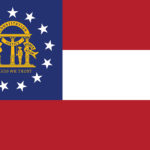 Georgia: While a Judge with the U.S. Attorney’s Office for the Middle District of Georgia signed off on removing Houston County and its Board of Commissioners from a voting rights lawsuit, the legal battle between Black voters and the Board of Elections continues. In March, the DOJ voluntarily dismissed the lawsuit, but not before two Black Houston County residents, Courtney Driver and Mike Jones, joined the case as Plaintiff-Intervenors. Court documents listed the county, its current Board of Commissioners, Board of Elections and its chair, Pamela Morgan, as defendants. In a new legal battle, Houston County’s attorneys filed a motion to dismiss the Plaintiff-Intervenors’ case, arguing they need a “private right of action” without the backing of the DOJ. “Without a private right of action, this Court lacks jurisdiction to hear Plaintiff-Intervenors’ claim and their Complaint should be dismissed in its entirety,” the filing states. They also argued that Houston County and the Board of Commissioners should be removed from the case because they do not control how elections are administered. According to court records, U.S. Middle District Court of Georgia Judge Marc T. Treadwell granted the order and terminated Houston County’s attorney’s motion to dismiss the case entirely on April 7. However, Judge Treadwell did not specify why he disagreed with the former defendant’s arguments for a private right of action. The case now leaves Driver and Jones as sole plaintiffs and the Houston County Board of Elections and its chair, Pamela Morgan, as defendants in the voting rights violation lawsuit.
Georgia: While a Judge with the U.S. Attorney’s Office for the Middle District of Georgia signed off on removing Houston County and its Board of Commissioners from a voting rights lawsuit, the legal battle between Black voters and the Board of Elections continues. In March, the DOJ voluntarily dismissed the lawsuit, but not before two Black Houston County residents, Courtney Driver and Mike Jones, joined the case as Plaintiff-Intervenors. Court documents listed the county, its current Board of Commissioners, Board of Elections and its chair, Pamela Morgan, as defendants. In a new legal battle, Houston County’s attorneys filed a motion to dismiss the Plaintiff-Intervenors’ case, arguing they need a “private right of action” without the backing of the DOJ. “Without a private right of action, this Court lacks jurisdiction to hear Plaintiff-Intervenors’ claim and their Complaint should be dismissed in its entirety,” the filing states. They also argued that Houston County and the Board of Commissioners should be removed from the case because they do not control how elections are administered. According to court records, U.S. Middle District Court of Georgia Judge Marc T. Treadwell granted the order and terminated Houston County’s attorney’s motion to dismiss the case entirely on April 7. However, Judge Treadwell did not specify why he disagreed with the former defendant’s arguments for a private right of action. The case now leaves Driver and Jones as sole plaintiffs and the Houston County Board of Elections and its chair, Pamela Morgan, as defendants in the voting rights violation lawsuit.
 Mississippi: A federal three-judge panel is again ordering the State Board of Election Commissioners to redraw state senate districts in northeast Mississippi to allow fair opportunity for Black voters to elect preferred candidates. The panel ordered the state to redraw 10 Senate voting districts and five House districts in response to a 2022 NAACP lawsuit that alleged voting power for the black voting age population (BVAP) was diluted in Mississippi due to gerrymandered district lines. The panel of judges accepted the redrawn House Districts 16, 22, 36, 39, and 41 in Chickasaw County, but upheld the plaintiffs’ appeal that the new map in DeSoto County, redrawing Senate Districts 1, 2, 10, 11, and 19, was not satisfactory. In previous hearings, the panel cited a lack of precedent for what exactly delineates equal opportunity for Black voters. Republican lawmakers decried the line of decisions, specifically in DeSoto County, arguing that districts should not be drawn to guarantee the election of Black Democrats, but rather that maps should provide equal opportunity. But for the new DeSoto County voting map, the panel sided with the Mississippi NAACP’s argument that even though the changed districts became majority Black when they previously weren’t, “effective opportunity” that took socioeconomic, voting history, and prior election result factors into account was not established. The State Board of Election Commissioners was given seven days to propose a new map for the districts in DeSoto County that are more favorable for Black voters.
Mississippi: A federal three-judge panel is again ordering the State Board of Election Commissioners to redraw state senate districts in northeast Mississippi to allow fair opportunity for Black voters to elect preferred candidates. The panel ordered the state to redraw 10 Senate voting districts and five House districts in response to a 2022 NAACP lawsuit that alleged voting power for the black voting age population (BVAP) was diluted in Mississippi due to gerrymandered district lines. The panel of judges accepted the redrawn House Districts 16, 22, 36, 39, and 41 in Chickasaw County, but upheld the plaintiffs’ appeal that the new map in DeSoto County, redrawing Senate Districts 1, 2, 10, 11, and 19, was not satisfactory. In previous hearings, the panel cited a lack of precedent for what exactly delineates equal opportunity for Black voters. Republican lawmakers decried the line of decisions, specifically in DeSoto County, arguing that districts should not be drawn to guarantee the election of Black Democrats, but rather that maps should provide equal opportunity. But for the new DeSoto County voting map, the panel sided with the Mississippi NAACP’s argument that even though the changed districts became majority Black when they previously weren’t, “effective opportunity” that took socioeconomic, voting history, and prior election result factors into account was not established. The State Board of Election Commissioners was given seven days to propose a new map for the districts in DeSoto County that are more favorable for Black voters.
 North Carolina: In a 4-2 decision, the North Carolina Supreme Court issued an order upholding the validity of over 60,00 ballots cast in its associate justice race, requiring thousands of others to be cured and discarding almost 300 ballots. North Carolina Court of Appeals Judge Jefferson Griffin has challenged over 65,000 ballots after trailing behind his opponent, Associate Justice Allison Riggs, in the election over a seat on the state’s highest court. He claims that over 60,000 ballots cast by voters who have data missing in the state’s voter roll database should be removed or cured and that the state should also require ballots cast by overseas and military voters to be cured, as it did not require them to provide photo ID to vote. Furthermore, Griffin has pushed that several hundred ballots cast by U.S. citizens residing abroad who have never resided in the United States — dubbed “never residents” — should be invalidated in his race. Many of these voters could potentially be ineligible to vote, Griffin has said, although he has not been able to prove any ballots were falsely cast. The most recent decision by the state’s highest court found that voters with missing data in the database — over 60,000 — do not need to cure their ballots. They had previously been given 15 business days to cure their ballots for their vote to be counted in Griffin’s race. The justices noted that it would be a different case if North Carolina’s voter ID law were not in effect, as all voters were required to present photo ID at the polls or fill out a photo exemption form. These voters are impacted by the state election board’s “inattention and failure to dutifully confirm its conduct to the law’s requirements,” Associate Justice Trey Allen wrote in the order, calling the incomplete registrations the board’s responsibility, not that of voters. “Under this court’s longstanding precedent, mistakes made by negligent election officials in registering citizens who are otherwise eligible to vote ‘will not deprive the [citizens] of [their] right to vote or render [their] vote[s] void after [they have] been cast,’” Allen wrote. “Because the responsibility for the technical defects in the voters’ registrations rests with the board and not the voters, the wholesale voiding of ballots cast by individuals who subsequently proved their identity to the board by complying with the voter identification law would undermine the principle that ‘this is a government of the people, in which the will of the people the majority legally expressed, must govern,’” the justice said. The court ordered that military and overseas voters will be required to cure their ballots but given a longer deadline: 30 business days after the notices are mailed, instead of the Court of Appeals’ 15 business days. Thousands of voters abroad may be impacted. So-called never residents, of which there are 267, will not have their ballots counted, as the court denied review of the Court of Appeals’ decision to discard them. The justices also dissolved a stay they issued earlier this week, halting the curing process, and sent the case back down to the Court of Appeals.
North Carolina: In a 4-2 decision, the North Carolina Supreme Court issued an order upholding the validity of over 60,00 ballots cast in its associate justice race, requiring thousands of others to be cured and discarding almost 300 ballots. North Carolina Court of Appeals Judge Jefferson Griffin has challenged over 65,000 ballots after trailing behind his opponent, Associate Justice Allison Riggs, in the election over a seat on the state’s highest court. He claims that over 60,000 ballots cast by voters who have data missing in the state’s voter roll database should be removed or cured and that the state should also require ballots cast by overseas and military voters to be cured, as it did not require them to provide photo ID to vote. Furthermore, Griffin has pushed that several hundred ballots cast by U.S. citizens residing abroad who have never resided in the United States — dubbed “never residents” — should be invalidated in his race. Many of these voters could potentially be ineligible to vote, Griffin has said, although he has not been able to prove any ballots were falsely cast. The most recent decision by the state’s highest court found that voters with missing data in the database — over 60,000 — do not need to cure their ballots. They had previously been given 15 business days to cure their ballots for their vote to be counted in Griffin’s race. The justices noted that it would be a different case if North Carolina’s voter ID law were not in effect, as all voters were required to present photo ID at the polls or fill out a photo exemption form. These voters are impacted by the state election board’s “inattention and failure to dutifully confirm its conduct to the law’s requirements,” Associate Justice Trey Allen wrote in the order, calling the incomplete registrations the board’s responsibility, not that of voters. “Under this court’s longstanding precedent, mistakes made by negligent election officials in registering citizens who are otherwise eligible to vote ‘will not deprive the [citizens] of [their] right to vote or render [their] vote[s] void after [they have] been cast,’” Allen wrote. “Because the responsibility for the technical defects in the voters’ registrations rests with the board and not the voters, the wholesale voiding of ballots cast by individuals who subsequently proved their identity to the board by complying with the voter identification law would undermine the principle that ‘this is a government of the people, in which the will of the people the majority legally expressed, must govern,’” the justice said. The court ordered that military and overseas voters will be required to cure their ballots but given a longer deadline: 30 business days after the notices are mailed, instead of the Court of Appeals’ 15 business days. Thousands of voters abroad may be impacted. So-called never residents, of which there are 267, will not have their ballots counted, as the court denied review of the Court of Appeals’ decision to discard them. The justices also dissolved a stay they issued earlier this week, halting the curing process, and sent the case back down to the Court of Appeals.
Military spouses and overseas voters filed a class action April 14, hoping to block post-election voter verification processes implemented by the North Carolina Supreme Court that would require their ballots to be cured or removed. “The U.S. Constitution prohibits North Carolina from retroactively applying novel election rules articulated months after the 2024 election to arbitrarily disenfranchise eligible, qualified voters like plaintiffs,” the League of Women Voters of North Carolina and a group of U.S. citizens voting abroad say in their suit against members of the state board of elections. The plaintiffs argue that they were not required to provide photo ID to vote, and were prohibited from doing so when they cast their ballots. They could not have possibly complied with a requirement that did not exist at the time of the election, they said. According to the plaintiffs, Griffin did not contact any of them informing them that their ballot was being challenged and that they may be required to act for their vote to be counted in the Supreme Court associate justice race. “Voters relied on election officials to maintain and enforce lawful election rules, and they relied on election officials’ assurances that they had fulfilled all applicable requirements to register and to vote in the Seat Six election. Articulating new rules months after the votes were counted, and then retroactively applying those rules to overturn the democratic choice of the voters, deprives plaintiffs of their fundamental rights to vote and to due process, which ‘protects the right of qualified citizens to vote and to have their votes counted as cast,’” the plaintiffs say.
Superior Court Judges Edwin Wilson, Andrew Womble and Lori Hamilton heard arguments this week from attorneys for Republican legislative leaders who insist their latest method to attempt to wrest control of the State Board of Elections from a Democratic governor is lawful — this time giving the job of appointing members to the GOP state auditor. But lawyers for Democratic Gov. Josh Stein, who sued to stop the changes approved late last year by the General Assembly and begin in earnest next month, contend the alteration suffers constitutional flaws similar to those that caused courts to strike down previous GOP attempts. “The General Assembly is on a mission to both enact and execute the state’s elections,” Stein attorney Jim Phillips said while urging Wilson, Womble and Hamilton to strike down the latest law. The judges didn’t immediately rule after a 2 1/2-hour hearing but have signaled they would act before the chief change starts May 1.
 Oklahoma: A legal fight is underway over the future of primary elections in Oklahoma. The state’s Republican Party is asking the Oklahoma Supreme Court to block State Question 836, a proposed ballot initiative that would open up primary elections to all voters, regardless of party affiliation. Supporters of the measure say it could expand voter access and increase turnout. But Republican leaders argue it infringes on the constitutional rights of political parties. The proposed initiative would allow registered voters in Oklahoma to vote in any primary election, even if they’re not affiliated with the party hosting that primary. Currently, political parties in Oklahoma can choose whether to open their primaries to independents. Only registered Republicans can vote in Republican primaries, while registered Democrats and registered Independents can vote in Democrat primaries. SQ 836 would change that, allowing all registered voters to participate regardless of party rules. The Oklahoma Republican Party filed a lawsuit with the state’s highest court, claiming SQ 836 violates their First Amendment rights. They argue that political parties are private associations with the constitutional right to determine who participates in their candidate selection process. Forcing them to accept votes from outside the party, they say, is unconstitutional.
Oklahoma: A legal fight is underway over the future of primary elections in Oklahoma. The state’s Republican Party is asking the Oklahoma Supreme Court to block State Question 836, a proposed ballot initiative that would open up primary elections to all voters, regardless of party affiliation. Supporters of the measure say it could expand voter access and increase turnout. But Republican leaders argue it infringes on the constitutional rights of political parties. The proposed initiative would allow registered voters in Oklahoma to vote in any primary election, even if they’re not affiliated with the party hosting that primary. Currently, political parties in Oklahoma can choose whether to open their primaries to independents. Only registered Republicans can vote in Republican primaries, while registered Democrats and registered Independents can vote in Democrat primaries. SQ 836 would change that, allowing all registered voters to participate regardless of party rules. The Oklahoma Republican Party filed a lawsuit with the state’s highest court, claiming SQ 836 violates their First Amendment rights. They argue that political parties are private associations with the constitutional right to determine who participates in their candidate selection process. Forcing them to accept votes from outside the party, they say, is unconstitutional.
Opinions This Week
National Opinions: SAVE Act, II, III, IV, V | Voting rights | Election security officials | Free elections | Election security | Election legislation
Arizona: Voter suppression
California: Ranked choice voting | SAVE Act
Connecticut: SAVE Act | Secretary of state, II
Florida: Alan Hays
Illinois: Vote by mail
Indiana: Voter ID
Iowa: Noncitizen voting
Kansas: Elections confidence
Michigan: Voting rights
Mississippi: SAVE Act
Montana: Voter registration
New Hampshire: Guns at polling places
North Carolina: Challenged voters, II | Supreme Court race, II, III
Ohio: Voting rights
Texas: Guns at polling places | Ex-felon voting rights; Vote centers | SAVE Act
Virginia: Same day registration
Wisconsin: Madison clerk
Upcoming Events
2025 EAC Local Leadership Council Annual Meeting: The U.S. Election Assistance Commission (EAC)’s Local Leadership Council (LLC) will host an in-person public meeting on April 21 – 22, 2025, at the Grand Bohemian Charlotte hotel in Charlotte, North Carolina. During the meeting, members will conduct regular business and discuss EAC updates and upcoming programs. The LLC consists of 100 members. The EAC appoints two members from each state after soliciting nominations from each state’s election official professional association. If you are a member of the public and you are interested in attending, please register below. The EAC will only accept written comments and questions from members of the public. If you would like to participate, please email clearinghouse@eac.gov with your full name and question or comment no later than 5:00 p.m. ET on April 18, 2025. When: April 21-22. Where: Online
Election Center April Special Workshop: The Election Center April Special Workshop will be held in Pittsburgh. The conference will run April 23-25 and CERA courses will be offered April 26 and 27. The CERA courses offered will be: Course 9 (History III, 1965 to present); Course 10 (Constitutional Law of Elections); and Renewal Course 38 (Leadership in Election Administration). When: April 23-27. Where: Pittsburgh, Pennsylvania.
2025 EAC Standards Board Annual Meeting: The U.S. Election Assistance Commission (EAC)’s Standards Board will host an in-person public meeting on April 24-25, 2025 at the Grand Bohemian Charlotte hotel in Charlotte, North Carolina. During the meeting, members will conduct regular business and discuss EAC updates and upcoming programs. The Standards Board consists of 55 state election officials selected by their respective chief state election official and 55 local election officials selected through a process supervised by the chief state election official. If you are a member of the public and you are interested in attending, please register below. The EAC will only accept written comments and questions from members of the public. If you would like to participate, please email clearinghouse@eac.gov with your full name and question or comment no later than 5:00 p.m. ET on April 23, 2025. When: April 24-25. Where: Charlotte, North Carolina
How Did Misinformation and AI Deepfakes Impact the 2024 Election?: With rapid advances in the ability of artificial intelligence to produce text, images, and video, many were concerned about its potential impact on the 2024 election. Now that the dust has settled, join R Street for an engaging conversation about whether deepfakes and misinformation impacted the 2024 election and how we can apply lessons learned to future elections. When: April 29 1pm to 2pm Eastern. Where: Online.
2025 EAC Board of Advisors Annual Meeting: The U.S. Election Assistance Commission (EAC)’s Board of Advisors will host an in-person public meeting on May 5 – 6, 2025, in the agency’s hearing room. During the meeting, members will conduct regular business and discuss EAC updates and upcoming programs. The Board of Advisors is a 35-member board composed of representatives from various EAC stakeholder associations, federal government agencies, and Congress. If you are a member of the public and you are interested in attending, please register below. The EAC will only accept written comments and questions from members of the public. If you would like to participate, please email clearinghouse@eac.gov with your full name and question or comment no later than 5:00 p.m. ET on May 2, 2025. When: May 5-6. Where: Washington, DC.
iGO Summer Conference: The International Association of Government Officials will hold their summer conference in Kansas City, Missouri from June 20-24. Please refer to the iGO website for more information and to register for the event.
NASED Summer Conference: The National Association of State Election Directors will hold its summer conference in Oklahoma from July 22-24. Please refer to the NASED website for more information when it becomes available.
NASS Summer Conference: The National Association of Secretaries of State will hold its summer conference in Biloxi, Mississippi from August 4-7. Please refer to the NASS website for more information when it becomes available.
Election Center Annual Conference: The Election Center Annual Conference will be held in Salt Lake City. The conference will run August 20-22 and CERA courses will be offered August 23 and 24. The CERA courses offered will be: Course 5 (Ethics); Course 6 (Communications & Public Relations); and Two renewal courses to be announced. When: August 20 to 24. Where: Salt Lake City.
Job Postings This Week
electionlineWeekly publishes election administration job postings each week as a free service to our readers. To have your job listed in the newsletter, please send a copy of the job description, including a web link to mmoretti@electionline.org. Job postings must be received by 5pm on Wednesday in order to appear in the Thursday newsletter. Listings will run for three weeks or till the deadline listed in the posting.
Assistant Elections Director, Connecticut Secretary of State’s Office– The Legislation and Election Administration Division (LEAD) administers, interprets and implements all state and federal laws pertaining to elections, primaries, nominating procedures, and the acquisition and exercise of voting rights. The Division encourages and monitors the implementation of the National Voter Registration Act and other voter registration efforts in Connecticut. In addition, the division is the official keeper of all acts, orders, grants, and resolutions of the General Assembly, receives and maintains legislation, regulations and a wide range of other public documents as required by statute, and administers Connecticut’s notary public program. Assist the Division Director in managing all aspects of LEAD’s projects, programs, and staff; Assign and provide oversight for all election and voter registration functions; Supervise four (4) Staff Attorneys, six (6) Elections Officers, and two (2) administrative support staff members; Ensure compliance with registration and election laws; Coordinate the training of local election officials; Draft legislative proposals and regulations; Monitor changes in federal election law, funding sources, and grant opportunities; Serve as a liaison between the agency and registrars of voters, town clerks, municipal governments, other state agencies, other state governments, and the federal government; Attend regional and statewide meetings of town clerks and registrars organizations; Receive and respond to public inquiries, requests for assistance, and complaints regarding areas of responsibility; Work with the IT Director to strengthen Connecticut’s cybersecurity infrastructure, manage existing technology, and implement new technology for election systems, accessible voting systems, online voter registration, motor-voter registration, and other agency programs; Monitor available Help America Vote Act (HAVA) funds or other funding sources and grant opportunities; Support the Division Director as needed for responsibilities associated with the National Association of Election Directors (NASED), the Electronic Voter Registration Center (ERIC), and other national boards as requested by the Secretary and Division Director. Salary: $102,653 – $139,958/year. Deadline: April 23. Application: For the complete job listing and to apply, click here.
Candidate Services Coordinator, Seminole County, Florida – The Candidate Services Coordinator is a key member of the Supervisor of Elections Office, responsible for ensuring smooth administrative operations with a focus on candidate services and assists with accounting functions and payroll processing. This position requires attention to detail, organizational skills, and the ability to effectively handle multiple responsibilities while maintaining confidentiality and compliance with applicable laws and regulations. This position is responsible for managing the candidate qualifying process, serving as primary point of contact for candidates, maintaining accurate records related to candidate filings, financial disclosures, and other required documentation, and coordinating candidate workshops and providing training on election procedures and campaign finance rules. Salary: $36,000 – $46,000 Annually. Application: For the complete job listing and to apply, click here.
County Clerk, Lane County, Oregon– Lane County is seeking an experienced and dynamic leader to serve as County Clerk and Election & Recording Principal Manager, overseeing critical functions that uphold the integrity of our democratic processes and public records. This pivotal role leads a dedicated team committed to excellence, accuracy, and service to our community. As County Clerk, you will: Plan, organize, and conduct all federal, state, and local elections; Oversee voter registration, property tax appeals, and permanent real property records; Manage marriage licensing, domestic partnership registrations, and archived records; Ensure compliance with Federal, State, and Local laws governing elections and records; Lead a team of 14 full-time employees, ensuring exceptional service and operational efficiency; and Prepare and analyze data, manage budgets, and oversee technology solutions that support Clerk operations. This is a fast-paced, high-impact role where you’ll serve as Lane County’s Clerk and Election & Recording Principal Manager, working under the direction of the Director of Operations to deliver services that affect all residents. Why Lane County? Lane County, the fourth most populous county in Oregon, offers a rich and diverse landscape stretching from the Pacific Ocean to the Cascade Mountains. Our county seat, Eugene, is a vibrant community with ample opportunities for living, working, and recreation. We are proud to offer an excellent benefits package and the chance to make a meaningful impact in public service. Salary: $90,625.60 – $133,286.40 Annually. Application: For the complete job listing and to apply, click here.
Customer Support Consultant, Hart InterCivic– A Customer Support Center Consultant Level 1 (CSC 1) responds to requests for assistance from Hart InterCivic customers for all Hart InterCivic products. The CSC I’s primary responsibilities are to: Answer, resolve and route customer queries; Maintain professionalism and “customer first” approach in stressful situations; Acquire, demonstrate, and maintain depth of knowledge with all Hart products and product documentation to best support Hart customers; Acquire and maintain functional support-level knowledge of unique customer requirements and their implementation in Hart products; Provide data tracking, reporting, and analytics for CSC projects; Manage and maintain the security of Hart’s assets and customer information; and Serve as a backup/overflow resource Technical Services Workstation deployment and RMA management. Application: For the complete job listing and to apply, click here.
Bilingual Constituent Services Specialist, Denver Elections– The Denver Elections Division is currently seeking an eager and dedicated individual to serve as the Bilingual Constituent Services Specialist. This position will primarily support our gold standard of voter-centric services by acting as the Division’s liaison at the Elections Front Counter. The Bilingual Constituent Services Lead Assistant will also: Supervise, train, and ensure best practices for temporary staff (election judges) who work at the Front Counter during election cycles; Assist constituents in a friendly and professional manner, ensuring that information provided is accurate and accessible; Effectively communicate with constituents in both English and Spanish by phone, email, and SMS; Lead Early Voting activities at the Elections Division Main Office and coordinate out-of-county ballot transfers; Work cooperatively with internal and external stakeholders to provide information about election and campaign requirements to the public; Plan and implement election processes within the Constituent Services functional area, including establishing and maintaining correspondence and call center templates and other election training resources for temporary staff; Focus on continuous process improvements by tracking constituent services metrics and streamlining work processes; Process voter registration forms and tasks in SCORE, the statewide voter registration system, as assigned; Support voter registration and election activities at City and County of Denver jails, as assigned; Establish and maintain security procedures for mail handling at the Front Counter; Act as a subject matter expert in elections by continuously reviewing Colorado election laws to accurately inform and instruct the public and internal staff; Oversee the appropriate secure storage of voter registration documents and election materials at the Front Counter; Escalate any building security concerns to management and the security team. Salary: $24.71 – $37.07/hr. Deadline: April 28. Application: For the complete job listing and to apply, click here.
Deputy Recording Supervisor, Pinal County, Arizona–Have you considered investing in your community? Pinal County is a beautiful place that needs passionate people who want to help others and make a difference in their lives. Public service is a rewarding career choice; not only does it provide an immense sense purpose it also impacts you financially as well. We may not be the most competitive on salary, but we offer an amazing value to our employees including highly sought after retirement plans, paid sabbaticals every five years and extremely affordable benefit costs. In the long run, Pinal County is an excellent choice to fulfill your heart and soul along with funding your retirement! Job Summary: Performs professional and administrative work in planning, organizing and directing strategic and daily goals and objectives, operations and activities of the department. Supervise and direct the activities of the deputy recording clerks. Receives and reviews various official documents to determine appropriate actions based upon knowledge of statutory and regulatory requirements. Maintains the County Voter Registration of active and inactive voter listings. Processes and maintains record of official documents, voter registration forms and early ballots. Provide customer service, and perform historical research of various public records in the County Recorder’s Office (CRO). The employee is expected to exercise initiative, independent judgment and discretion. Application: For the complete job listing and to apply, click here.
Election Coordinator, Douglas County, Colorado– This is a professional level position responsible for providing collaborative leadership to coordinate, enhance, and support operations and programming within the Office of Clerk and Recorder Elections Division. The Coordinator is a supervisory position that leads and oversees work related to election planning with the Colorado Department of State and local jurisdictions for the conduct of elections. Conducts year-round elections operations in compliance with State and Federal law, collaborates with the Elections team to prepare for upcoming election cycles, and assists with the administration of elections functions as assigned. Responsible for coordination of election workers. In the absence of management, assumes responsibility for front-line functions associated with voter services. This is a highly visible position requiring leadership, organizational, and communication skills. Salary: $62,092 – 93,138. Deadline: April 20. Application: For the complete job listing and to apply, please click here.
Election Services Supervisor, Sonoma County, California– Within the Registrar of Voters, this Election Services Supervisor (Voter Registration) collaborates with the elections management team to ensure proper elections procedures are followed by staff, and provides supervision, training, and support to elections operations. They develop and implement elections office procedures to enhance efficiency and identify opportunities for improving voter services and the overall election experience. Additional responsibilities include: Ensuring compliance with election deadlines, policies, and procedures; Monitoring critical election process timelines and ensuring that staff are meeting deadlines; Supervising voter registration staff including assigning tasks, coaching staff, managing workloads and evaluating staff performance; Training seasonal, extra-help staff during critical junctures of election cycles; Managing voter registration and ensuring compliance with applicable regulations; and Assisting with gathering information for Public Records Act (PRA) requests. The ideal candidate will have a passion for election administration and voter engagement, and an understanding of election codes and laws related to elections with related research experience. Salary: $81,439.42 – $98,992.10 Deadline: April 22. Application: For the complete job listing and to apply, click here.
Election Specialist, Candidate Services, Palm Beach County, Florida– This position is responsible for the management and execution of services provided to candidates, political committees, electioneering communication organizations, political parties, community development districts, and special taxing districts. This includes establishing and maintaining an organized system for managing the required forms and records associated with filing and qualifying for office, candidate petitions, campaign finance reporting, financial disclosures, initiative petitions, and other related activities. Candidate Services staff must be organized and personable with a great attitude, be able to work well in a team environment, and meet deadlines under pressure. Excellent work ethic, including consistent performance, integrity, reliability, and attendance, is a must. Must be detail-oriented, be able to handle simultaneous projects, and be a self-starter. Salary: $21.63 – $24.04. Application: For the complete job listing and to apply, click here.
Elections Division Manager, Washington County, Minnesota– The Washington County Property Records and Taxpayer Services Department is seeking an experienced and collaborative leader to serve as our Elections Division Manager. We’re looking for a skilled manager with a strong background in election administration, voter registration, process management, or related fields. Experience leading complex operations, managing teams, and ensuring compliance with legal requirements will be highly valued. This position oversees all aspects of elections operations, ensuring compliance with statutory requirements and department objectives while leading a team of full-time and temporary employees to successfully administer federal, state, county, municipal, school district, and special elections. This is an excellent opportunity for a strategic thinker who excels under pressure, values integrity and transparency, and is dedicated to providing exceptional service to the residents of Washington County. Salary: $87,276.80 – $119,246.40 Annually. Deadline: April 20. Application: For the complete job listing and to apply, click here.
Elections Logistics Technician, Bartow County, Georgia–This position performs technical, clerical, and logistical duties relating to voter registration, the selection and preparation of various polling places, as well as the deployment and return of the equipment and supplies to those polling places.Completes and maintains electrical power and ADA compliance diagrams for all current polling places; assesses and diagrams all potential new polling places for the same criteria. Alerts polling places to upcoming elections and otherwise schedules facilities as required. Coordinates voting system deployment and instructs temporary employees on correct deployment procedures. Oversees and maintains supplies for all polling places; instructs temporary employees on correct procedures. Organizes the return and storage of ballots and supplies from polling places on election night; instructs temporary employees on correct procedures. Assists with the coordination of all election audits as required by Georgia law. Registers voters and updates current voter information. Processes and certifies absentee ballots. Scans, indexes, and files registration cards, campaign reports, voter applications and related documents. Sorts and processes mail. Assists the general public, candidates, board members, poll workers, vendors and the media with questions and concerns. Performs related duties as assigned. Salary: $36,608-$39,624 Annually. Application: For the complete job listing and to apply, click here.
Elections Specialist, Pinal County, Arizona– Perform a variety of paraprofessional and technical functions in the administration and support of the elections functions for Pinal County under general supervision. Work in this classification requires an individual to be able to perform the essential job functions satisfactorily. Reasonable accommodations may be made to enable individuals with disabilities to perform the primary classification functions herein described. Since every duty associated with this classification may not be described herein, employees may be required to perform duties not specifically spelled out in this classification description, but which may be reasonably considered to be incidental in the performing of their duties just as though they were actually written out in this description. Salary: $42,000 – $59,117 Annually. Application: For the complete job listing and to apply, click here.
IT Assistant Manager, Palm Beach County, Florida– The Assistant IT Manager plays a supportive role in the smooth operation of the IT department, ensuring that both the technical infrastructure and the team are aligned with the organization’s goals. This position involves collaborating closely with the Election Technology Director to oversee the implementation of technology solutions that meet the needs of the organization. The Assistant IT Manager helps maintain an efficient and effective IT environment. Oversee daily operations of the IT department, including help desk operations and performance, troubleshooting issues, and ensuring efficient workflow. Hold department meetings and provide weekly performance summary. Manage IT projects under the direction of the Election Technology Director, ensuring timely completion, budget requirements, and organizational needs. Enforce IT policies and procedures to ensure data security, network access, and system availability. Assist in the management of IT staff by developing skills, coaching, and communicating job expectations. Coordinate vendor renewals, assist with IT budget development, and manage grant applications. Evaluate and assist in maintaining the organization’s disaster recovery and business continuity plans for IT. Assist with IT Public Records requests research and fulfillment. Assist the Election Technology Director in all facets of IT operations. Lead projects and mentor team members. Application: For the complete job listing and to apply, click here.
Project Manager, HartIntercivic– Project Managers at Hart InterCivic are highly motivated “self-starters” who are enthusiastic about providing exceptional customer service. Working with other members of the Professional Services and Operations teams, the Project Manager directs activity, solves problems, and develops lasting and strong relationships with our customers. Hart InterCivic’s unique and industry-known culture of innovation, transparency, and customer-centric focus creates an environment where team members will continually grow and be challenged to develop their careers. Application: For the complete job listing and to apply, click here.
Physical Security Specialist, Palm Beach County, Florida– This position is responsible for administration of the physical security programs in a manner consistent with Supervisor of Elections Office policies, procedures, quality standards, and applicable local, state, and federal regulations. These programs include conducting facility security risk assessments, assisting with access control, monitoring alarms and CCTV systems, and providing security related training. Must be organized and personable with a great attitude, be able to work well in a team environment, and meet deadlines under pressure. Excellent work ethic, including consistent performance, integrity, reliability, and attendance, is a must. Candidate must be detail-oriented and understand the importance of security and safety for all. Must be available 24/7 365, be able to handle simultaneous projects, and be a self-starter. Application: For the complete job listing and to apply, click here.
Registrar Technician, Bartow County, Georgia– This position performs technical and clerical duties relating to the research, processing, and auditing of voter registration records, and related geographic data. Registers voters and updates current voter’s information. Assists with and otherwise troubleshoots issues with applications for voter registration and related documents. Utilizes GIS software to assist with maintenance of district lines, precinct lines, and polling place locations. Maintains and updates addresses in the statewide voter registration system’s address library. Processes and certifies absentee ballots. Assists the general public, candidates, board members, poll workers, vendors, and the media with questions and concerns. Answers telephone and greets visitors; provides information and assistance; refers to appropriate personnel. Scans, indexes, and files registration cards, campaign reports, voter applications, and related documents. Assists and coordinates audits of voter registration and credit for voting in the statewide voter registration system. Sorts and processes mail. Performs related duties as assigned. Salary: $36,608-$39,624 Annually. Application: For the complete job listing and to apply, click here.
Sales Director, SOE Software– The ideal candidate will be a combination of an experienced salesperson and someone familiar with US elections. This position will focus on the sales of voting modernization software within the US, targeting state and local governments. This position will report to the President of the company. This is a predominantly autonomous and challenging role that requires the right candidate to show leadership, ownership, enthusiasm, professionalism, and an entrepreneurial spirit toward business. This is a role that requires frequent travel within the region. The role would suit someone currently in a commercial role, selling software solutions/services into the US marketplace in the public sector. The ideal candidate will have strong state and local government contacts. The successful candidate will have considerable experience in building, growing, and managing a database of truly qualified prospects. Application: For the complete job listing and to apply, click here.
Senior Elections Supervisor, Placer County, California– The Placer County Clerk-Recorder-Elections Office has a current vacancy for a Senior Elections Supervisor. The Office is looking for someone with experience in the development, supervision, and administration of elections programs. The ideal candidate will have supervised in an elections office or similar agency that emphasizes cooperation, accountability and transparency and has the ability to communicate effectively with management, staff, other county departments, jurisdictions and the voters of Placer County. To learn more about the Elections Division of the Clerk-Recorder-Elections Office please click here. In addition to the minimum education and experience, the ideal candidate will possess experience and vision in the following areas: State and federal election laws; Voting systems; General operating policies and functions of the California Secretary of State’s Office; Best practices and current trends in successful election administration, community education and outreach programs; Principles and techniques of effective employee supervision and development, training, management practices and public administration. Salary: $69,056.00 – $86,195.20/year. Application: For the complete job listing and to apply, click here.
Voter Services Clerk, Seminole County, Florida – The Voter Services Clerk serves as the primary customer service representative for the Seminole County Supervisor of Elections Office. This position is responsible for the accurate maintenance and entry of voter registration information, ensuring the integrity and confidentiality of voter data, and providing essential assistance to voters, including answering inquiries and processing voter-related documents. The Clerk will also be involved in various clerical and administrative tasks associated with voter services, ensuring compliance with applicable state and federal election laws. Responsibilities include processing new voter registrations, updates or changes to existing registrations, vote-by-mail ballot requests, and returns, as well as petition verifications and other voter record-related tasks, providing accurate voter registration and election information to the public in person, by phone, or via mail, in accordance with Florida state laws, regulations, and procedures, conducting research to resolve issues related to voter registration records, utilizing sources both within the voter database and external government websites or online resources, ensuring the accuracy and completeness of voter registration records by verifying information, validating signatures on candidate and initiative petitions, maintaining and update street maintenance files to ensure an up-to-date and accurate residential address database for Seminole County. Salary: $17 – $22 Hourly. Application: For the complete job listing and to apply, click here.
Marketplace
electionline provides no guarantees as to the quality of the items being sold and the accuracy of the information provided about the sale items in the Marketplace. Ads are provided directly by sellers and are not verified by electionline. If you have an ad for Marketplace, please email it to: mmoretti@electionline.org